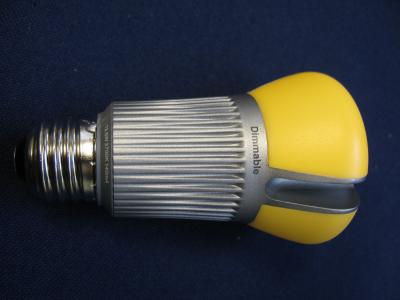Contemporary light-emitting diode bulbs are infinitesimally environmentally superior when compared to compact fluorescent lamps. That superiority is expected to grow considerably with growing technology and production methods in the forthcoming 5 years, as per a recent report fromN14 Energy located in the U.K. and the Department of Energy’s Pacific Northwest National Laboratory (PNNL).

LED light bulb
The report analyzes the repercussions on the environment as well as resources and power required for manufacturing, distributing, operating and disposing light bulbs. Fifteen repercussions were taken into account when measuring environmental footprints, inclusive of chances for increasing global warming, using land originally meant for wildlife, and generating waste and polluting the environment and other resources such as water and soil. The report studies the entire life duration of three types of bulbs – light-emitting diodes (LEDs), compact fluorescent lamps (CFLs) and conventional incandescent light bulbs. Production techniques significantly affect a light bulb’s environmental repercussions. But such techniques are generally kept under wraps. The analysts obtained data from organizations under conditions of total anonymity.
The analysts first chose representative bulbs from each category. Then, from a database they got information on the resources required to produce the bulbs. The incandescent bulb studied used 60 W of electricity whereas the LED studied used 12.5 W and the CFL studied used 15 W to generate the same quantity of light. Thus, both CFLs and LEDs were much more energy-efficient and environmentally friendly than the conventional incandescent bulbs.
CFLs caused marginally more environmental damage than LEDs in all but one of the 15 repercussions investigated. The one repercussion was the energy-intensive method of producing aluminum for heat sinks in LEDs that keep them from overheating and which generates hazardous by-products. Plans are underway to minimize this deleterious impact. Future LEDs will have much lesser environmental repercussions than CFLs and today’s LEDs.
Disclaimer: The views expressed here are those of the author expressed in their private capacity and do not necessarily represent the views of AZoM.com Limited T/A AZoNetwork the owner and operator of this website. This disclaimer forms part of the Terms and conditions of use of this website.